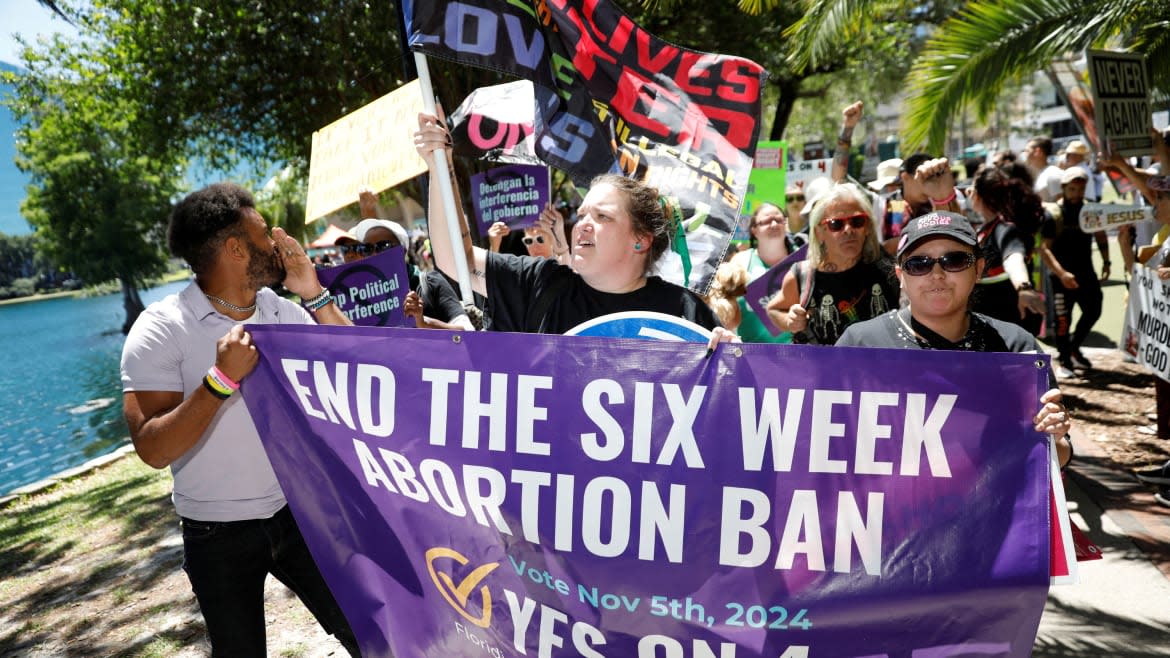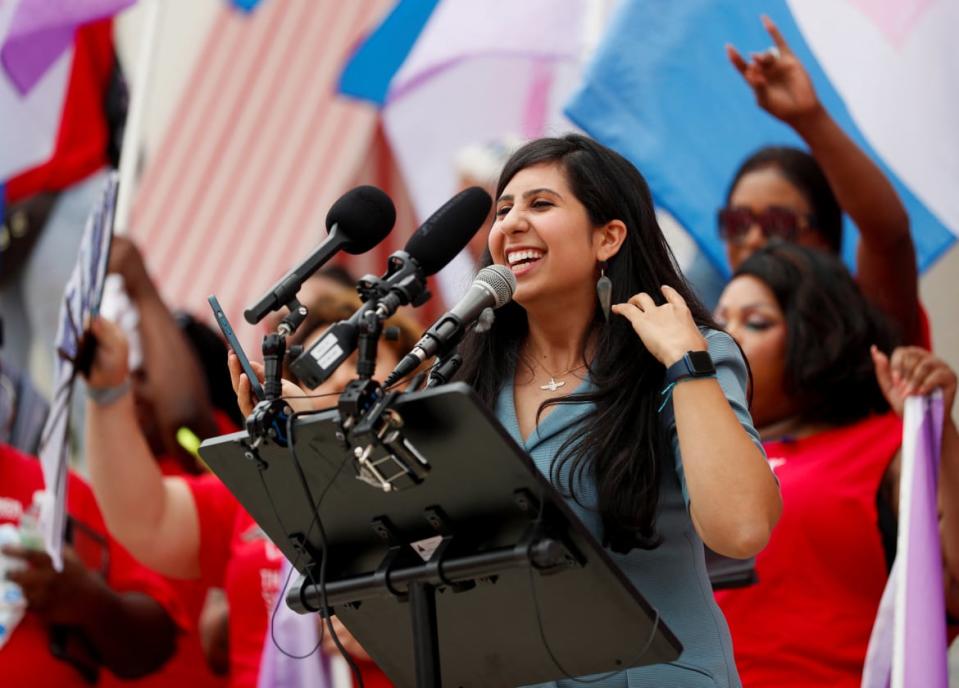Florida Abortion Ban Is ‘Reality Check’—and Checkbooks Open

The place to be earlier this month in Central Florida was the 242-seat Planned Parenthood Orlando Benefit Dinner, a pink-and-black themed event titled “Brave.” It even had a waiting list.
“It was the who’s who of Central Florida,” Florida state Rep. Anna Eskamani (D-Orlando), who attended the April 18 fundraiser, told The Daily Beast. “It was a sold-out event.”
The dinner did not feature a celebrity speaker like other recent Planned Parenthood events in the area—actress Amber Tamblyn keynoted a dinner in Sarasota and author Judy Blume headlined one in West Palm Beach—or raise as much as a Naples soiree in February that raked in a million bucks.
But with a six-week abortion ban about to take effect in Florida, checkbooks were definitely open in affluent Winter Park that night and the event raised a record-breaking $400,000.
“This six-week abortion ban is not only devastating, but it’s a reality check for many who have historically been on the sidelines, thinking that we would never get to this point,” Eskamani said.
“The reality of a near-total abortion ban is going to be felt by all, especially as more stories of women being unable to access care become public. This has already resulted in the philanthropic stepping up their engagement.”
The new law banning most abortions after six weeks of pregnancy—with exceptions for rape, incest, and human trafficking—took effect Wednesday. It replaces a 15-week ban and includes a 24-hour waiting period.

Florida State House Representative Anna Eskamani (D).
Florida is the third state to impose a six-week ban, joining South Carolina and Georgia. There are now just three states in the South—Delaware, Maryland, and Virginia—where abortion remains legal past the first trimester. Fourteen states have total abortion bans.
After Wednesday, the closest state for Florida women to get an abortion is North Carolina, which has a 12-week ban and a 72-hour waiting period, and Virginia, which doesn’t have a ban. But the ban also affects women across the state because until now, Florida has been the closest place to get an abortion for women in southern states that enacted earlier bans.
“Florida was a safe harbor for abortion access for many many years in the South,” Stephanie Loraine Pineiro, executive director of Florida Access Network, told The Daily Beast. “Now, we’re in the apocalypse.”
The 2022 overturn of Roe v. Wade pre-emptively enacted “trigger laws” in states like Mississippi, Louisiana, and Kentucky. But Florida still allowed abortion up to 15 weeks.
“We saw an even more influx of women from those states,” Jessica Hatem, executive director of Emergency Medical Assistance of West Palm Beach, told The Daily Beast.
Florida Voters Will Get to Vote on Hyper-Restrictive Abortion Ban in November
One in three abortions in the South occurred in Florida last year, according to the Guttmacher Institute, a research organization that focuses on reproductive rights. That made Florida the second-largest abortion provider behind California, with 84,000 procedures in 2023.
“Florida had been seeing patients in Alabama, Kentucky, Mississippi—and now we aren’t able to serve them, either,” Laura Goodhue, executive director of Florida Planned Parenthood, said.
Kevin Wagner, a political science professor at Florida Atlantic University, said the ban pushed by Gov. Ron DeSantis may not be the last word on abortion. Earlier in April, the state Supreme Court approved a ballot measure that would amend the Florida constitution to protect abortion rights up to the point of fetal viability—or around 24 weeks. Dubbed “Amendment 4,” it will be on the November ballot and will need support from 60 percent of Florida voters to pass.
According to an April 18 FAU poll of 865 people, 49 percent of respondents said they support Amendment 4, while 19 percent are opposed and another 32 percent did not answer.
The responses, he said, are not surprising given the disjointed nature of Florida’s purplish politics and the fact that some residents did not realize the six-week ban was about to be enacted.
“Florida is different from the rest of the South,” Wagner said. “The old political science joke about Florida is basically three states: You have North Florida, which is a lot like Georgia and Alabama. Then there’s South Florida, which mimics the Northeast and some people call it the missing borough of New York. And then of course, there's Central Florida…often tends to be a much more competitive area of the state because it's considerably newer and consists of people that have often moved from other parts of the country. So it’s a little harder to predict which way they will go.”
Stephanie Loraine Pineiro, executive director of Florida Access Network, is banking on the ballot measure to restore some semblance of abortion access but says the movement needs more support.
After Roe fell, her group received $200,000 in individual donations. “In this month of April, we have received a quarter of that,” she said.
That could change, she thinks, after Floridians realize their abortion rights have been obliterated overnight.
“Sometimes, it takes these types of ‘abortion apocalypses’ for people to realize the abortion impacts all of us and step up,” Pineiro said. “I suspect that people will be forced to be aware and will respond in monetary donations.”
Amber Gavin, vice president of advocacy and operations at an independent abortion clinic with locations in Florida and two other states, said the ban will hurt something many Floridians are worried about: the state’s bottom line.
“It means people fresh out of college won’t move to Florida because they won’t get the health care they need. There will also be a shortage of OB-GYNs in the state because they will refuse to move somewhere they can’t do what they trained for,” Gavin said.
“Not to mention, health issues and mortality will increase in Florida. It’s a compounding issue. It’s not just health care, we’re talking about economics. And speaks to everybody.”
Get the Daily Beast's biggest scoops and scandals delivered right to your inbox. Sign up now.
Stay informed and gain unlimited access to the Daily Beast's unmatched reporting. Subscribe now.
Solve the daily Crossword

